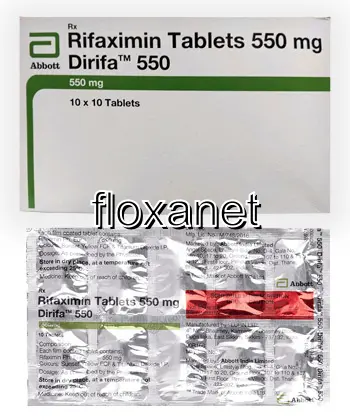| Package | Dosage | Price | Price per Dose | |
|---|---|---|---|---|
| Dosage: 200mg | ||||
| 270 pill | 200mg | CAD424.20 | CAD1.57 | |
| 180 pill | 200mg | CAD310.57 | CAD1.72 | |
| 120 pill | 200mg | CAD227.24 | CAD1.89 | |
| 90 pill | 200mg | CAD179.89 | CAD2.01 | |
| 60 pill | 200mg | CAD130.65 | CAD2.18 | |
| 30 pill | 200mg | CAD68.16 | CAD2.27 | |
| 20 pill | 200mg | CAD47.33 | CAD2.37 | |
| 10 pill | 200mg | CAD26.49 | CAD2.65 | |
| Dosage: 400mg | ||||
| 270 pill | 400mg | CAD776.45 | CAD2.88 | |
| 180 pill | 400mg | CAD545.40 | CAD3.03 | |
| 120 pill | 400mg | CAD374.96 | CAD3.12 | |
| 90 pill | 400mg | CAD289.73 | CAD3.22 | |
| 60 pill | 400mg | CAD198.83 | CAD3.31 | |
| 30 pill | 400mg | CAD102.25 | CAD3.41 | |
| 20 pill | 400mg | CAD70.05 | CAD3.50 | |
| 10 pill | 400mg | CAD35.96 | CAD3.60 | |
| Dosage: 550mg | ||||
| 270 pill | 550mg | CAD920.38 | CAD3.41 | |
| 180 pill | 550mg | CAD630.62 | CAD3.50 | |
| 120 pill | 550mg | CAD454.50 | CAD3.79 | |
| 90 pill | 550mg | CAD357.91 | CAD3.98 | |
| 60 pill | 550mg | CAD244.28 | CAD4.07 | |
| 30 pill | 550mg | CAD126.87 | CAD4.22 | |
| 20 pill | 550mg | CAD88.99 | CAD4.45 | |
| 10 pill | 550mg | CAD47.33 | CAD4.73 | |

Rifaximin Description
Overview of Rifaximin
Rifaximin is an oral antibiotic that belongs to the rifamycin family. It is primarily used to treat various gastrointestinal infections and conditions due to its localized action in the gut. Its design allows it to remain largely within the gastrointestinal tract, minimizing systemic absorption and reducing the risk of widespread side effects. This characteristic makes Rifaximin a popular choice for treating conditions such as traveler’s diarrhea, hepatic encephalopathy, and irritable bowel syndrome with diarrhea (IBS-D).
Effectiveness and Mechanism of Action
The effectiveness of Rifaximin is rooted in its ability to target bacteria responsible for gastrointestinal infections. It works by inhibiting bacterial RNA synthesis, which leads to the death of susceptible bacteria. Because of its localized action, it can rapidly reduce pathogenic bacteria in the gut, offering symptomatic relief. When used for traveler’s diarrhea, it usually provides quick relief and prevents further complications. For hepatic encephalopathy, Rifaximin reduces the production of toxins by intestinal bacteria, helping to improve mental function and reduce episodes of confusion or coma.
Usage and Dosage
Rifaximin is available in various dosages, typically in tablets. The prescribed dosage depends on the condition being treated. For traveler’s diarrhea, a common regimen is 200 mg three times daily for 3 days. In the case of hepatic encephalopathy, the usual dose is 550 mg twice daily. It is essential to follow the healthcare provider’s instructions precisely to optimize benefits and minimize resistance. Treatment duration varies based on the condition and response, so regular medical supervision is necessary.
Side Effects and Precautions
Rifaximin is generally well tolerated, with most users experiencing mild side effects. Common adverse reactions include nausea, dizziness, and elevation of liver enzymes. Rarely, some individuals may develop allergic reactions or gastrointestinal discomfort. Because Rifaximin remains mostly within the gut, systemic side effects are less common but may include fatigue or allergic responses. Patients with a history of allergy to rifamycins should avoid this medication. It’s also advisable to use caution in individuals with liver impairment or other underlying health conditions and to inform your doctor of any other medications being taken to avoid potential interactions.
Advantages and Limitations
One of the main advantages of Rifaximin is its targeted approach, reducing the likelihood of systemic side effects and antibiotic-associated complications like yeast infections. Its quick onset of relief in gastrointestinal infections adds to its popularity. However, limitations include the potential development of bacterial resistance if misused or overused. It is not effective for systemic infections and should not replace other antibiotics when systemic treatment is needed. Cost can also be a factor, as Rifaximin may be more expensive than other antibiotics.
Final Considerations
Overall, Rifaximin is a valuable medication for treating specific gastrointestinal conditions. Its safety profile, combined with its targeted mechanism, makes it a preferred choice in many situations. Still, it requires proper medical guidance to ensure effective use and to prevent resistance development. Patients should adhere strictly to prescribed dosages and report any unusual side effects to their healthcare provider promptly. When used appropriately, Rifaximin can significantly improve quality of life for sufferers of gastrointestinal infections and related conditions.
